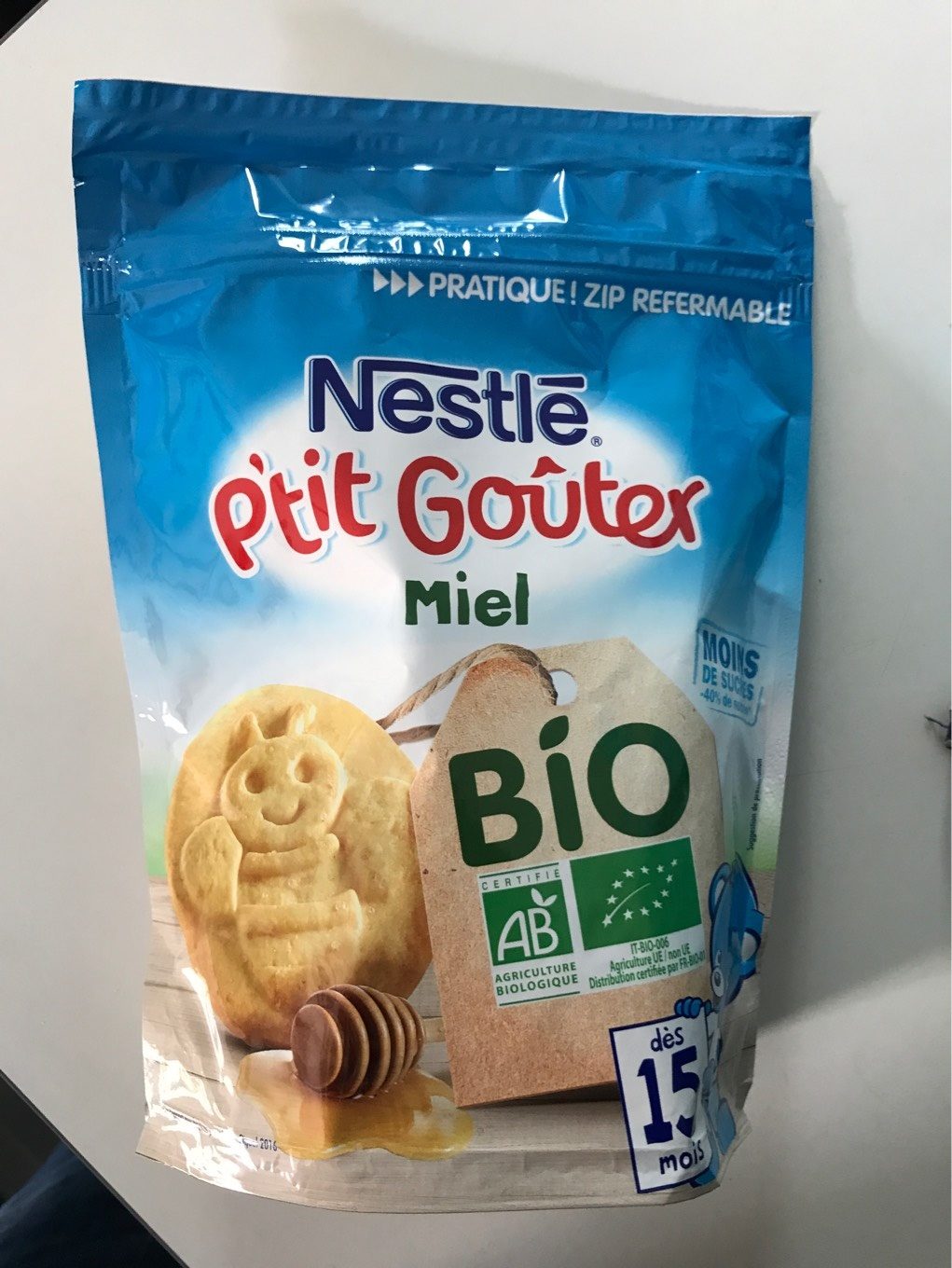P’tit gouter Miel - Nestlé - 150 g
Aquesta pàgina del producte no està completa. Podeu ajudar a completar-la editant-la i afegint-hi més dades a partir de les fotos ja disponibles, o fent-ne més amb l'aplicació de androide o iPhone / iPad. Gràcies!
×
Codi de barres: 7613036100670 (EAN / EAN-13)
Quantitat: 150 g
Marques: Nestlé
Categories: Alimentació per a nadons, Snacks i postres per a nadons, Galetes per a nadons
Etiquetes, certificacions, premis:
Lliure de gluten, Orgànic, Orgànic UE, Agricultura No-UE, Agricultura UE, Procedent d'agricultura UE/no UE, IT-BIO-006, AB Agriculture Biologique

Matching with your preferences
Entorn
Petjada de carboni
Empaquetament
Transport
Etiquetes
Report a problem
Fonts de dades
Producte afegit per kiliweb
Última modificació de la pàgina del producte per roboto-app.
La pàgina del producte, també editada per elcoco, naruyoko, openfoodfacts-contributors, quechoisir, stephane, yuka.YUlVUkNhZytyZWtIcHRobjFFckU0OWhOL2JHN1cxK25jdnRQSUE9PQ.










